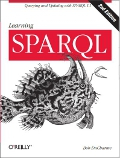
The title of Jonathan Zittrain's book The Future of the Internet makes it sound like one of those upbeat future technology books that you see people in suits reading on planes, but the subtitle "and How to Stop It" shows that it's not so upbeat. Zittrain, the Professor of Internet Governance and Regulation at Oxford University and the co-founder of Harvard Law School's Berkman Center for Internet & Society, describes how so much use of the Internet is headed in directions that contradict the principles that made the Internet great in the first place. The most important of these principles is what he calls generativity—flexibility in the creation of hardware, operating systems, applications, or websites that allow people to make new contributions, often resulting in unexpected contributions that others can build on further. While Linux, Apache web servers, Firefox, wikis, the IBM PC's open architecture, and many other platforms have provided this so far, the increasing use of "tethered appliances" to perform Internet-related tasks threatens this pattern. Products such as the iPhone, TiVo, and the XBox are so tightly controlled by their makers that any innovations built on these platforms must come from within the companies that control them, much like any innovation in the U.S. telephone system had to come from the monopoly company that controlled it for so many decades. Sure, you can write a new application for the iPhone, but no one can load your app onto their iPhone until it goes into Apple, gets approved, and then distributed by them. If you want to add a new menu option to Firefox and recompile it, no such approval process is necessary for people to use it, and this kind of freedom is how the Internet grew to where it is today.
I don't want to rehash the whole book here, but I'll admit that I expected it to be fairly dry and read it mostly out of a sense of responsibility to be up on these issues. It actually is a fairly quick read; I read most of my copy sitting on a beach. Once Zittrain lays out his case, which includes a history of the Internet that was fascinating to someone who's read quite a few histories of the Internet, he reviews several of the things that have gone wrong (for example, spam and malware). This sets the stage for how tightly-controlled Internet walled gardens are becoming more appealing to people, and he describes some of the decentralized, grass-roots practices that have dealt with such issues surprisingly effectively—for example, robots.txt files and Wikipedia's practices for resolving disputes.
He does present a hopeful case for how the future can build on current work by technical people and legal scholars to prevent the looming corporate-controlled Internet. (One legal scholars he mentions is Pamela Samuelson, a member of the markup geek family if only by marriage.) I strongly recommend the book to geeks interested in relevant legal issues and to lawyers interested in Internet technology, because Zittrain lays out the explicit, implicit, and potential connections between these worlds so well.
He's made an online version of the book available under a Creative Commons license at at his web site. All his talk of people building on each others' work gave me one nice idea: create a version of his footnotes in which court case citations are live links to publicly available versions of those cases. For example, a link from the citation in footnote 3 of chapter 2 of the book to the judge's decision on 238 F.2d 266 at justia.com.
One more thing for the to-do pile.

